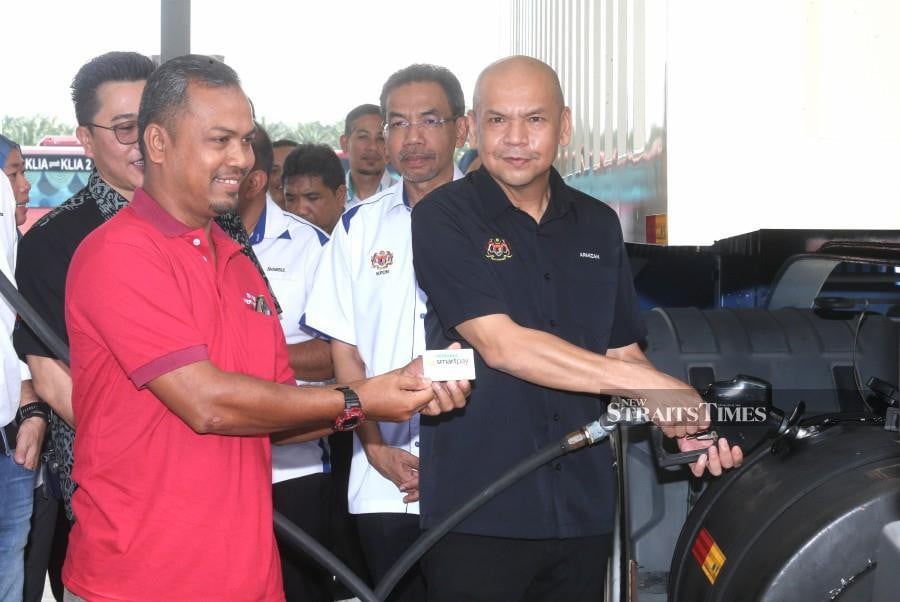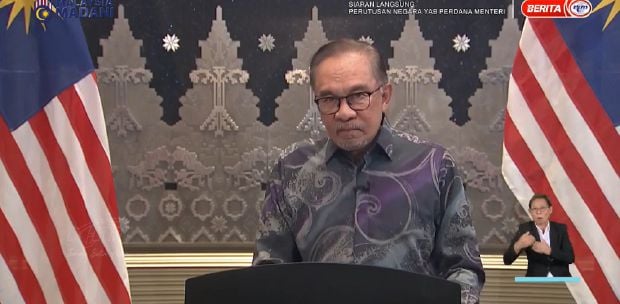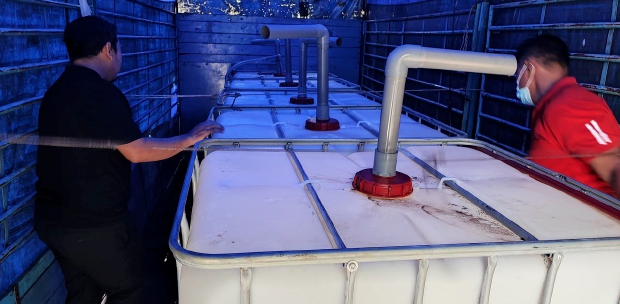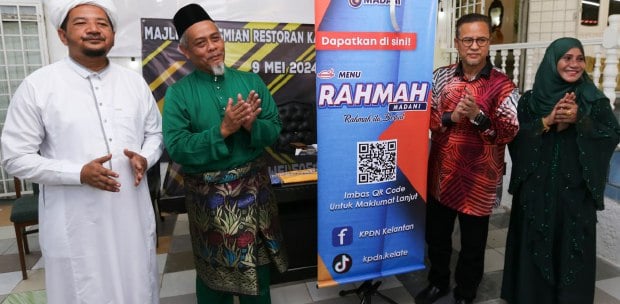SEPANG: Six logistics companies will pilot the government's targeted diesel subsidy system from today until March 31.
Domestic Trade and Cost of Living Minister Datuk Armizan Ali said the pilot project, called the Subsidised Diesel Control System 2.0 (SKDS 2.0), would lead to the halt of diesel being subsidised in bulk by the second quarter of this year.
"Through the retargeting initiative, the government essentially considered providing special-rate subsidies to the land transport sector for the public and goods sub-sector.
"Before the roll-out of the diesel subsidy retargeting, of which the date will be determined later, the ministry is testing the MySubsidi Diesel system.
"The MySubsidi Diesel system will be used with the fleet card of oil companies in the implementation of subsidy targeting in the future," he said after surveying the first day of the fleet card implementation for the goods sector at Petronas KLIA 1, Jalan Terminal, here.
He said six pioneer logistics companies involved in the pilot SKDS 2.0 could get subsidised diesel for their vechicles at 3,792 fuel stations in the peninsula.
The companies are Perceptive Logistic Sdn Bhd, Multimodal Freight Sdn Bhd, Mun Chuen Transport Sdn Bhd, Tan Swee Hee Sdn Bhd, Sim Yew Enterprise Sdn Bhd and Rantau Panjang Haulage Sdn Bhd.
Armizan added that the ministry would monitor the MySubsidi Diesel and fleet card systems and gather feedback from these companies to improve the targeted diesel subsidy mechanism.
"Furthermore, this initial step can also assess the effectiveness of the MySubsidi Diesel and the fleet card systems of oil companies before implementation across the entire industry.
"Should the pilot project run smoothly in the next few weeks, we will suggest to the Finance Ministry to open this systems for other (transportation) companies."
He said the fleet card mechanism was one of the government's efforts to shift from the analogue skid tank system.
"This will ensure that subsidies can be targeted in an integrated manner while minimising misappropriation and smuggling.
"The government is always committed to ensuring the needs of the land transport (goods) sector to reduce the cost impact of transportation.
"This will avoid multiple cost increases, especially the prices of goods in addition to formulating an effective subsidy retargeting for all groups," he said.
Armizan said plans to start the SKDS 2.0 in Sabah and Sarawak would be discussed with the state governments.
"As we know, diesel usage is very high in Sabah and Sarawak, not only by transportation companies, but also among the public.
"So, to execute the project there simultaneously without looking into the implementation in the peninsula is not the right move due to concerns of rising issues.
"However, I will go to Sarawak on Feb 9 to meet its enforcement agencies and state government, followed by Sabah to discuss methods of strengthening the existing control and enforcement mechanisms."
The discussion, he added, would address the misappropriation and smuggling of diesel.
"We will sit down and obtain feedback from enforcement agencies, such as the police, Maritime Enforcement Agency and Customs Department on how we can beef up the enforcement."





